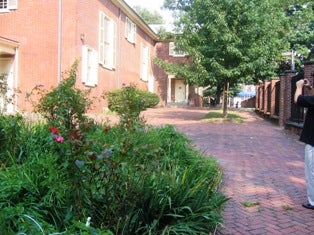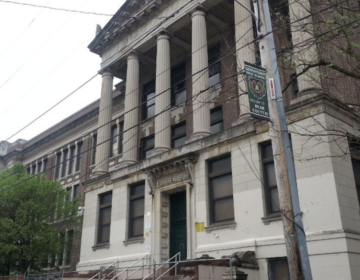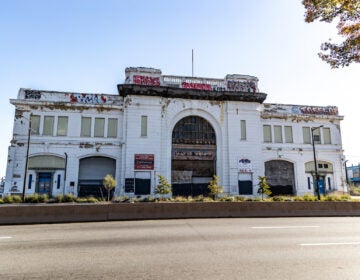Arch Street Meeting Q&A

Arch Street Meeting
Respondent: Brian J. Sullivan
Questions:
1. Quakerism occupies a special place in Philadelphia history both as the city’s founding denomination and as the originators of William Penn’s “Holy Experiment” of religious toleration. What is your congregation’s role in the history of the waterfront? How does this building, its place, and history illustrate the place of the Quakerism in Philadelphia?
2. How has your congregational make-up and ministry evolved over the past fifty years? What sorts of people attend meetings at Arch Street and where do they come from? What has drawn them to Arch Street Meeting?
3. What are some of your thoughts about the gentrification of Old City in the past decade? How has this affected you and your mission and your congregation?
4. What are your feelings about the proposed waterfront developments, not just casinos but also residential and commercial. How do you feel these will affect your ministry and your house of worship?
5. What do you see as the future of the Arch Street Meeting?
6. How did I-95 affect your congregation?
7. What does the phrase “Holy Experiment” mean to you in 2007?
Responses:
1. The several thousand Quakers who followed William Penn to Philadelphia in the first few years of the colony’s settlement very promptly ignored Penn’s street grid plan and for commerce, practical economy and socialization sake, built their combined houses and businesses close to each other and at the water’s edge. Those early Quakers are this congregation’s forebears. Arch Street Meeting House being the fifth building of this 325 year congregation.
Quakers then were very interested in the political organization of the city and established very early for Philadelphia, anti-gaming and restrictive entertainment laws, initially set at the boundaries between Vine and South Streets and river to river.
We recognize our building and its location to be very important as a window for inquirers today to Quakerism and Quaker history. We are a major destination point during the week for visitors inquiring about our history and beliefs. And on Sundays, we and the 15th Street Meeting House regularly welcome the most visitors, Quaker and non, coming to experience Quaker worship. As to the history of our building and members, it is long and deeply integrated into the social and political history of both the city and the nation. Quakerism is significant in Philadelphia because of this history and through our existing organizations operating out of Philadelphia today that work to impact social change and justice in our country and around the world.
2. Our congregation draws from both city and suburbs. Our oldest members have been attending since the mid-40ies and we are diverse by age, families and race. Our members and ministry have evolved over time through their diversity of social interest and cause.
3. Drawing our congregation from a wide geography has meant that changes in Old City’s residents has been of a lesser importance. The EXPLOSION of alcohol serving destinations has been of more concern and considerable effort over the years to monitor and contain, especially its negative residual effects.
4. In their breadth and scale the proposed waterfront developments seem greatly outsized. Casinos, lotteries and gambling are now, as they were at the inception of Philadelphia, an anathema to Quaker values. The absorption of time and energy, the displacement of ill-affordable resources and the negative consequences of addictions are all regrettable. The excessive focus given over to gaming and their nature are contrary to our testimonies of simplicity and integrity.
5. The future of Arch Street Meeting is strong with the support of our congregation and the role of our property in supporting our Philadelphia Yearly Meeting.
6 To the extent that I-95 has disrupted the normal flow and growth of the community of Old City, it has forestalled the historical redevelopment of Old City, and perhaps left it more vulnerable to exploit, in at least one quadrant of it, as a club and entertainment zone. This is a missed opportunity for the normally paced growth of a residential community, and therefore the supportive congregational development.
7. Holy Experiment means interfaith cooperation through useful and productive engagement, and its by-product: understanding.
WHYY is your source for fact-based, in-depth journalism and information. As a nonprofit organization, we rely on financial support from readers like you. Please give today.






